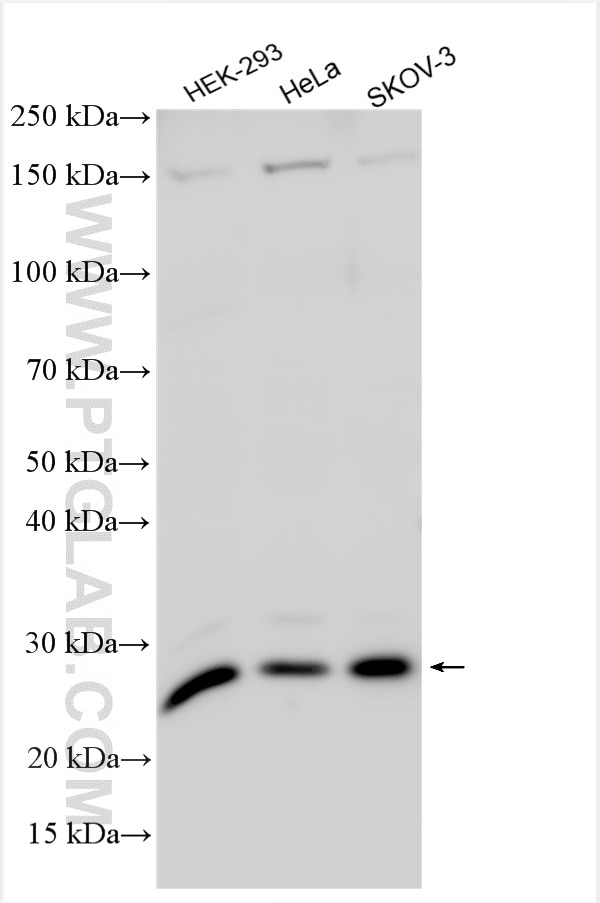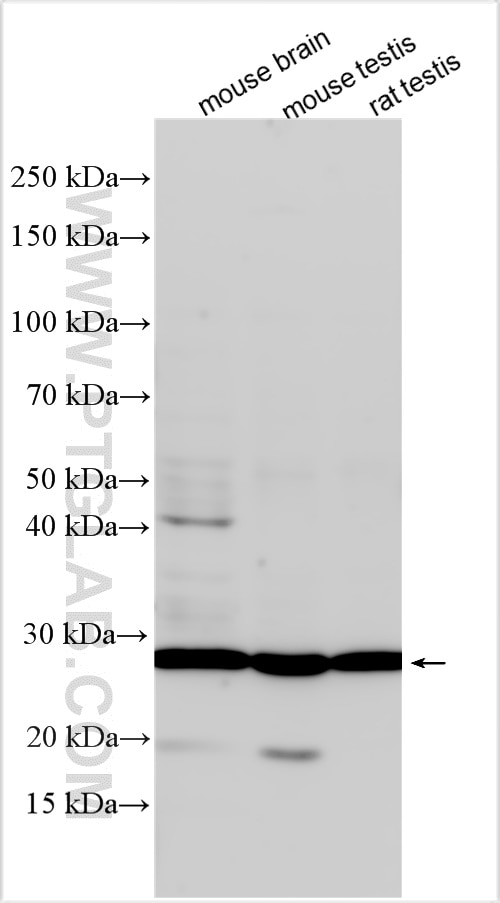RPL10L Polyclonal antibody
RPL10L Polyclonal Antibody for WB, ELISA
Host / Isotype
Rabbit / IgG
Reactivity
human, mouse, rat
Applications
WB, ELISA
Conjugate
Unconjugated
Cat no : 16222-1-AP
Synonyms
Validation Data Gallery
Tested Applications
| Positive WB detected in | HEK-293 cells, mouse brain tissue, HeLa cells, SKOV-3 cells, mouse testis tissue, rat testis tissue |
Recommended dilution
| Application | Dilution |
|---|---|
| Western Blot (WB) | WB : 1:1000-1:6000 |
| It is recommended that this reagent should be titrated in each testing system to obtain optimal results. | |
| Sample-dependent, Check data in validation data gallery. | |
Product Information
16222-1-AP targets RPL10L in WB, ELISA applications and shows reactivity with human, mouse, rat samples.
| Tested Reactivity | human, mouse, rat |
| Host / Isotype | Rabbit / IgG |
| Class | Polyclonal |
| Type | Antibody |
| Immunogen | RPL10L fusion protein Ag9275 |
| Full Name | ribosomal protein L10-like |
| Calculated Molecular Weight | 214 aa, 25 kDa |
| Observed Molecular Weight | 25 kDa |
| GenBank Accession Number | BC014310 |
| Gene Symbol | RPL10L |
| Gene ID (NCBI) | 140801 |
| Conjugate | Unconjugated |
| Form | Liquid |
| Purification Method | Antigen affinity purification |
| Storage Buffer | PBS with 0.02% sodium azide and 50% glycerol pH 7.3. |
| Storage Conditions | Store at -20°C. Stable for one year after shipment. Aliquoting is unnecessary for -20oC storage. 20ul sizes contain 0.1% BSA. |
Background Information
RPL10L (Ribosomal Protein L10 Like), is a testis-specific component of the ribosome, is responsible for regulating the biosynthesis and folding of a subset of male germ-cell-specific proteins that are essential for the formation of sperm(Uniprot). RPL10L plays an essential role during meiosis of spermatogenesis by compensating for its X-linked parental paralog, RPL10, during and after meiotic sex chromosome inactivation(MSCI) (PMID: 28502657).
Protocols
| Product Specific Protocols | |
|---|---|
| WB protocol for RPL10L antibody 16222-1-AP | Download protocol |
| Standard Protocols | |
|---|---|
| Click here to view our Standard Protocols |



